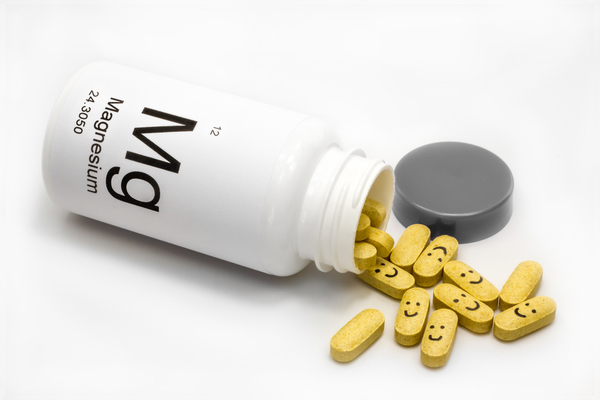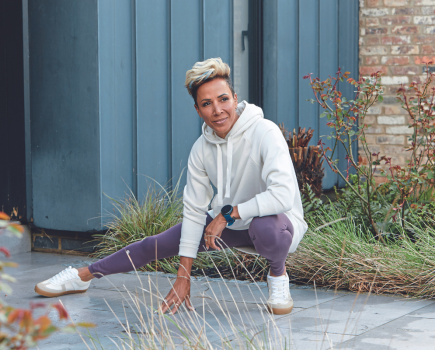It’s one of the best nutrients for fighting stress and helping you relax, yet one in five of us don’t get nearly enough. Here’s everythingyou need to know about magnesium.
By Katherine Watt
We all know meditation, a good night’s sleep and having massages can help us stay chilled out and combat stress that accumulates in our minds and bodies.
But there’s a powerful mineral that can help enhance your relaxation response: magnesium.
And most of us could do with having more of it. ‘Magnesium helps you produce energy, helps with hormonal balance and with relaxation, which is why it can reduce stress and anxiety,’ says nutritionist Libby Limon (libbylimon.com).
‘Specifically, magnesium directly affects the HPA axis that balances your nervous system, and studies have shown that when levels are low, the anxiety-causing part of this becomes more active.’
We ideally need at least 270mg of magnesium a day, but 80 per cent of us simply don’t reach that amount.
Why are people low on magnesium?
‘There are many reasons for this. Some foods that are good sources of magnesium such as nuts, beans and wholegrains can also contain anti-nutrients called phytates. These bind to magnesium in the body reducing the amount you absorb,’ says Libby.
On top of this, you need vitamin D to adequately absorb magnesium and many of us are low in this, particularly during winter.
Heavy exercise can also deplete magnesium. ‘Magnesium helps muscles relax so it’s used up during exercise,’ says Libby. ‘Minerals can also be excreted from your body when you sweat and so exercise can easily lower your levels.’
Increasing absorption
But it’s not just as simple as increasing your intake of food containing magnesium. ‘You might need to choose specific forms of some foods,’ says Libby.
‘For example, the white part of almonds is an excellent source of magnesium. However, the brown husk contains phytate, which binds to it. So, picking blanched almonds avoids this happening.’
Soaking nuts and beans before cooking reduces their phytate content and sprouted beans also have lower levels than unsprouted ones. Eating nuts as a snack is also better than adding them to salads. This is because their phytate content could reduce the absorption of magnesium in the leafy green veg.

Try a supplement
The other way to raise levels is to supplement but you need to choose carefully. ‘Cheaper supplements can contain magnesium oxide, which is not absorbed that well,’ says Libby. For optimum bioavailability, pick supplements containing magnesium citrate, lactate, aspartate or glycinate.
Higher doses of some forms of magnesium, particularly magnesium carbonate, chloride, gluconate and oxide, can cause nausea or an upset stomach. If you find this happens, try switching to other forms.
Skin supplements
Another option is to use magnesium transdermally, i.e. on your skin, which bypasses your stomach entirely.
Normally your skin prevents much of what you put on it from entering your bloodstream, but metal ions (of which magnesium is one) can cross the skin barrier.
In a study by the University of Hertfordshire, people using 56mg transdermal magnesium for two weeks had higher levels in their blood than you would expect from taking it nutritionally for the same length of time.
Many ways to get magnesium
1 Link Nutrition Magnesium (£15.95, linknutrition.com) is a food-state supplement so less likely to cause a stomach upset.
2 Altrient Liposomal Magnesium (79.99, abundanceandhealth.co.uk) is a revolutionary new liquid supplement which can raise magnesium levels in your brain for optimal cognitive function.
3 Pure Encapsulations Magnesium (£39.50, pure-encapsulations.co.uk), is the glycinate form, which is well absorbed and gentle on the stomach.
4 Better You Magnesium Oil Original Spray, (£12.95, betteryou.com) delivers high doses of magnesium through your skin making it good for muscle stiffness.
5 Bioglan Active Magnesium Cream (£11.99, bioglan.co.uk), combines magnesium with menthol to cool tired legs.
6 Westlab Magnesium Flakes, (£8.99, westlabsalts.co.uk), are suitable for use on sensitive, eczema-prone skin Add a good handful to your bath.
7 Higher Nature Magnesium Effervescent, (£6, highernature.co.uk) is a dissolvable form – good if you don’t like tablets.
If you need to relax, try our sleep tips from Dr Rangan Chatterjee.







